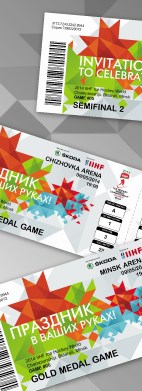Can Finns foil Canada?
Can Finns foil Canada?
Blue-and-white defence vs. red-and-white offence

 The last World Championship game between Canada and Finland was a 5-3 Canadian win on May 11, 2012. Who will prevail this time? Photo: Jeff Vinnick / HHOF-IIHF Images
The last World Championship game between Canada and Finland was a 5-3 Canadian win on May 11, 2012. Who will prevail this time? Photo: Jeff Vinnick / HHOF-IIHF Images
That’s the traditional Canadian mantra, and while coach Dave Tippett’s squad suffered a stunning 3-2 loss to upstart France on May 9, they’ve improved significantly. Since then, they’ve gone unbeaten and posted a 28-13 goal differential en route to first place in Group A.
Finland also started slowly with a 3-2 loss to Latvia. Unlike the Canadians, though, they were unable to beat the top teams in their group, falling 4-2 to Russia and 3-1 to the United States. Ending the round-robin with an unimpressive 4-3 win over now-demoted Kazakhstan, the Finns had to get some help in the form of Switzerland’s 3-2 victory over Latvia just to squeak into the elimination round.
“We knew we had to win this game and we got the win like we were supposed to,” said defenceman Juuso Hietanen, one of just six returnees from the Sochi Olympics, after defeating Kazakhstan. “It was probably a bit too tight in the end.”
With a goal differential of 18-15, the Finns are unlikely to beat Canada in a run-and-gun game – or even to attempt that. Goaltender Pekka Rinne, whom Finnish coach Erkka Westerlund has dubbed “our most important player,” will need to be a difference-maker.
The big Finn with the great glove, twice nominated for the Vezina Trophy as the NHL’s best goalie (2011, 2012), has played much better in Minsk this year than he did when suiting up for Dynamo Minsk during the last NHL lockout. With two shutouts, the Nashville Predators star has racked up a 92.9 save percentage and 1.65 GAA.
Neither Canadian goalie – Ben Scrivens of the Edmonton Oilers or James Reimer of the Toronto Maple Leafs – was under consideration for the Olympic team, while Rinne might have been Finland’s Sochi starter if he hadn’t missed four months with a hip infection. Scrivens will get the start against Finland based on his 95.3 save percentage and 1.31 GAA in three outings, but he lacks Rinne’s experience.
Canada’s all-NHL blueline corps, however, has been more impressive than Finland’s. As long as the Canadians can stay away from penalties against the gritty Finns, they should be in good shape.
Kevin Bieksa (2-2-4 with a plus-minus of +5) has justified his selection as team captain with rugged two-way play, and Ryan Ellis (1-4-5 and a team-best +8) has been as smart and reliable as he was as a three-time World Junior star. If Jason Garrison can hit the net more often with his powerful slapper, that’ll be a nice bonus.
The Finns will need to play as a tight defensive unit to succeed. Westerlund is spreading out the minutes more evenly than his Canadian counterpart: no one has played more minutes on average than Hietanen (20:04), whereas four Canadian rearguards have topped the 20-minute mark.
After edging Norway 3-2 to complete the round-robin, defenceman Braydon Coburn said: “It was a good effort, and now we’ll really see what we’ve got in the quarters here.”
To date, Canada’s forwards have brought a balanced attack. All 14 of them have notched at least one point, and there have been some standout efforts.
After enduring a disappointing season in Buffalo, center Cody Hodgson has come alive with six goals, including three game-winners. Washington’s Joel Ward, the team’s leading scorer (6-3-9), truly seems to be relishing his international debut, and has combined a willingness to go to the net with great hands when he gets there. Linemates Brayden Schenn, Jonathan Huberdeau and Nathan MacKinnon have shown flash and hustle, combining for 13 points, and seem capable of providing even more.
Finland, meanwhile, will lean on the smarts of team scoring leader Petri Kontiola (3-4-7), who posted a tournament-best 16 points last year. He has two game-winning goals and is always a power play threat. The KHL pivot from Traktor Chelyabinsk will get some support from Sibir Novosibirsk’s Jori Lehtera (1-4-5). Of course, the experience of captain and four-time Olympian Olli Jokinen (2-3-5) could prove invaluable in this pressure situation.
Which team is under more pressure here? On paper, you could say it’s Canada, with no World Championship titles since 2007 and no medals at all since 2009. But most Canadian fans aren’t distraught over their nation’s four straight quarter-final exits at this tournament, and while this team will undoubtedly give its all in an effort to advance, a loss would probably be downplayed in the domestic media due to Canada’s gold-medal performance in Sochi.
On the other hand, people danced naked in fountains in downtown Helsinki when Finland won its second World Championship gold medal of all time in 2011. Similar to this year’s team, that squad had just one bona fide NHL star in Minnesota Wild captain Mikko Koivu.
The Finns know they’ve had a mediocre tournament so far, but they also know they can turn disdain into rapture back home if they come up big here. Getting in position to win another 2014 medal after the Sochi bronze would be great. Rinne, in particular, should be motivated, as he has never won an IIHF medal despite his world-class talent.
This one is too close to call. Canada should win if it plays up to its potential, but don’t be shocked if the Finns claw their way to victory.
Back to Overview

















































































